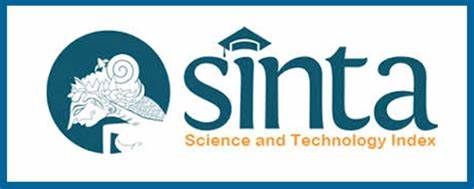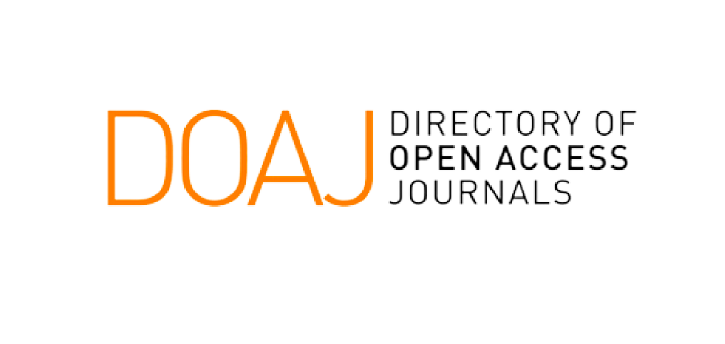MEMPERKUAT EKOSOSIAL UNTUK MENCEGAH DAMPAK BANJIR DI MALANG
Abstract
This article discusses the importance of strengthening the ecosocial concept to prevent and reduce the impact of flooding in the Bandulan area, Malang. The Bandulan area, Malang often experiences floods. To find out the consequences and impacts of floods, we conducted observations and interviews with local residents. Through these observations and interviews, it is known that flooding occurs due to high rainfall, a lot of scattered garbage, and an ineffective drainage system. Meanwhile, the impact of floods includes damage to infrastructure, disruption of community activities, loss of property, and even risks to the safety of residents' lives. In this article, we propose an ecosocial approach that involves the interaction between ecological and social aspects to deal with the problem of flooding. This approach recognizes that solutions to flooding problems cannot rely solely on technical efforts, but also pay attention to human relationships with the surrounding natural environment. Measures such as increased public awareness, restoration of natural ecosystems, and sustainable urban planning can help achieve these goals. Hopefully, this article can provide useful insights and recommendations for the government, community, and other related parties in dealing with flood problems in the Malang Bandulan area.
Keywords
Full Text:
PDFReferences
Afrian, R. (2021). Kajian Mitigasi Terhadap Penyebab Bencana Banjir di Desa Sidodadi Kota Langsa. Jurnal Georafflesia: Artikel Ilmiah Pendidikan Geografi. Vol 5(2), hlm 165-169.
Indra, K. (2019). Mitigasi Bencana Banjir Untuk Mengurangi Dampak Terhadap Lingkungan dan Kehidupan Sosial Masyarakat. Jurnal Rekayasa. Vol 8(2), hlm 154-160.
Muhibbin, M., Sugiharto, U. S., & Parmono, B. (2020). Partisipasi Masyarakat Kota Malang Dalam Pencegahan Bencana Banjir. Jurnal Negara dan Keadilan. Vol 9(2), hlm 218-238.
Myers, Neely Anne Laurenzo. (2022). The ecosocial self, place,andwell-being : Anethnographic case study with Maasai women from northern Tanzania. SSM-Mental Health, Vol. 2, Desember. https://doi.org/10.1016/j.ssmmh.2022.100144
Nafarin, A., Adyatma, S., Arisanty, D., & Riadi, S. (2017). Model Pengelolaan Daerah Rawan Bencana Banjir Berbasis Masyarakat di Kabupaten Hulu Sungai Tengah Provinsi Kalimantan Selatan.
Powers, Meredith; Schmitz, Cathryne; Moritz, Micalagh B. (2019). Preparing Social Workers for Ecosocial Work Practice and Community Building. Journal of Community Practice. https://dx.doi.org/10.1080/10705422.2019.1657217
Razikin, P., Kumalawati, R., & Arisanty, D. (2017). Strategi Penanggulangan Bencana Banjir Berdasarkan Persepsi Masyarakat Di Kecamatan Barabai Kabupaten Hulu Sungai Tengah. Jurnal Pendidikan Geografi. Vol 4(1).
Riyanto, E., Widyananto, E., Aziz, U. A., Taufik, M., & Setiawan, A. (2021). Sosialisasi Penyebab dan Kesiapsiagaan Bencana Banjir di Desa Sidomulyo Kecamatan Butuh Kabupaten Purworejo.
Rosyidie, A. (2013). Banjir: Fakta dan Dampaknya, Serta Pengaruh dari Perubahan Guna Lahan. Jurnal Perencanaan Wilayah dan Kota. Vol 24(3), hlm 241-249.
Rusli, & 'Ulya, A. F. (2018). Peran Pemerintah Kota Malang dalam Meningkatkan Kesiapsiagaan Masyarakat Menghadapi Bencana (Studi Manajemen Bencana). Jurnal Pendidikan Ilmu Pengetahuan Sosial.Vol 5(1), hlm 1-13.
Sugiyono. (2015). Metode penelitian pendidikan (pendekatan kuantitatif, kualitatif, dan r&d). Bandung: Penerbit Alfabeta.
Suleman, S. A., & Apsari, N. C. (2017). Peran Stakeholder Dalam Manajemen Bencana Banjir. Vol 4(1), hlm 53-59.
Suryadi, C. (2012). Penerapan Pendekatan Sosial Dan Ekologi Pada Upaya Promosi Kesehatan. Jurnal Ekologi Kesehatan, Vol 11(2), hlm 178 -187.
Thysell, Maria; Cuadra, Carin Bjorngren. (2023). Imagining the Ecosocial Within Social Work. International Journal of Social Welfare. https://dx.doi.org/10.1111/ijsw.12571
DOI: https://doi.org/10.21776/ub.waskita.2023.007.02.8
Refbacks
- There are currently no refbacks.
Copyright (c) 2023 Achmad Sutan Ihwan

This work is licensed under a Creative Commons Attribution 4.0 International License.









